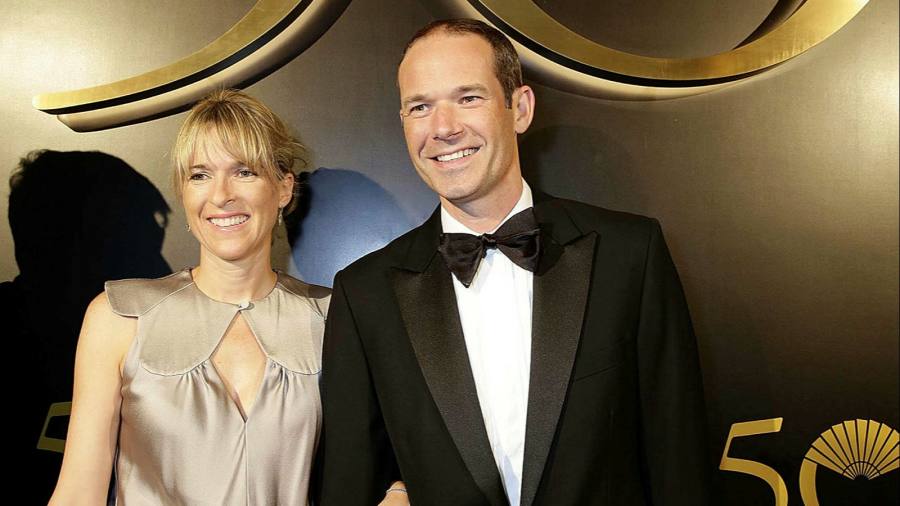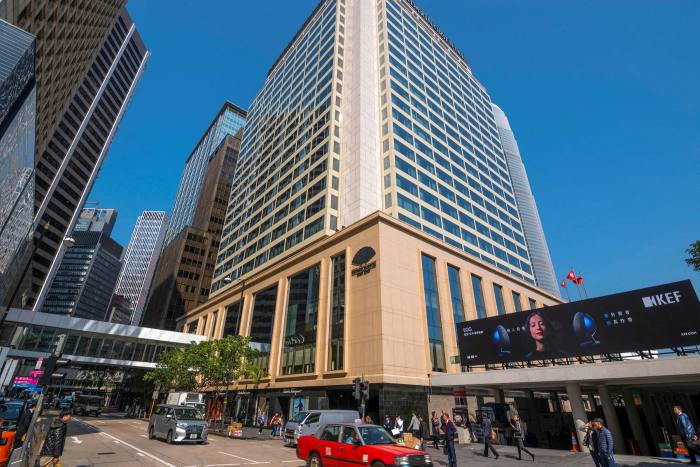[ad_1]
By his mid-twenties, Ben Keswick was being groomed to run the business his family has led for five generations in Hong Kong and turned into a $50bn pan-Asian empire.
This week, aged 48 and less than two years into his role as taipan — or top boss — of Jardine Matheson, Keswick has pulled off one of the biggest corporate restructurings in the company’s history.
The deal, in which the Jardines group will buy out the shareholders of its second-largest business unit for $5.5bn, could add vast sums to the Keswicks’ multibillion-dollar fortune and that of two other families linked by marriage, the Weatheralls and the Jencks.
Yet it also presents risks for the 190-year-old business. Keswick will unwind a convoluted cross-holding structure devised by his uncle, Sir Henry Keswick, in the 1980s to defend it from the threat of a hostile takeover. The set-up allowed the descendants of the group’s founding family to control a huge conglomerate while holding only about 17 per cent of the stock.
Keswick is trying to “modernise the business at an urgent pace†said one confidante, an adviser to Jardines’ board.
However, “it creates a more conventional set of risksâ€, the person added, “the largest being what happens if they don’t deliver the numbers in two or three yearsâ€.
A canny deal for Jardines
Jardine Matheson’s dominance is felt throughout Hong Kong. Its sprawling assets in the city include some of Hong Kong’s most expensive commercial properties and its biggest brands, such as the Mandarin Oriental hotel. Elsewhere, its holdings range from Vietnam’s largest dairy producer to a small cement maker in Thailand.
But its vast portfolio has attracted criticism. Jardines is “in around 28 totally uncorrelated sectors acquired by Henry [Keswick] over the 47 years he was at the top of the firm, and it’s really hard for anyone to articulate whyâ€, said one adviser to the business. “Under Ben, you’ll start to see them manage their portfolio with a sharper focus on sectors and return on capital.â€
The Keswicks have controlled the group for five generations since Thomas Keswick, from Dumfriesshire in Scotland, married the niece of Scottish trader William Jardine, who had started a merchant business in Hong Kong to trade tea and opium.
But keeping the family at the helm has required some politically unpopular moves. Jardines angered Beijing in the mid-1990s when Henry Keswick relocated its Hong Kong stock market listing to Singapore amid concerns about the territory after its handover to China in 1997.
Keswick inherited the chairmanship from his uncle, Henry, who retired aged 80. “Ben is a consensus leader where Henry was a conviction leader,†said one person close to the business.
Henry — who has been described by the FT as a “tall, round-faced Old Etonian with a courtly air and a mischievous sense of humour†— did not have any children, resulting in a succession battle that pitted Ben against his cousin, Adam, a board director of Jardines.
“I’m sure Adam was upset but I haven’t seen any problems between the two,†said an executive who advises the board. “They have a very good working relationship and together have masterminded the restructuring.â€
The overhaul has so far been viewed positively by the market. Shares in the group rose 15 per cent after the announcement and have continued to climb.
“It was certainly a good deal for Jardine Matheson,†said Hugh Young, Asia head of Aberdeen Standard, whose stake in Jardine Strategic will be bought out at $33 a share. “It was arguably worth a lot moreâ€.
How to future proof a conglomerate
Keswick is viewed by allies and people who know him as both “bright†and “paranoidâ€.
“He has a strong sense of duty to the company but also knows their history cannot define it,†said one ally.
In common with his uncle, said friends, Keswick has not made a taboo of the company’s role in the Sino-British opium wars. Both have approached building a relationship with China — which is crucial to Jardines’ future in Hong Kong — by being upfront about their family’s past.
“We have had long discussions about Jardines’ history in the opium trade,†said the chairman of a major financial services firm who has worked with the group for some years. “[Ben] doesn’t take himself too seriously in those discussions.â€
Keswick, who lives in Hong Kong with his wife, Martha, and four children, is “intensely privateâ€, according to one friend. He has never given a media interview.
Now, his biggest challenge is future-proofing Jardine after a significant hit to its property and hotel portfolio during the pandemic and following two years of political crisis in Hong Kong, where it makes more than a third of revenues.
He has made a number of decisive moves since taking over in 2019. Among them was appointing a “fresh blood†board that includes Stuart Gulliver, the former chief executive of HSBC, and Anne O’Riordan, ex-head of life sciences at Accenture, who has been tasked with overhauling the digital strategy of Jardines and its portfolio companies. Previously, its board was dominated by former executives of the company and family members.
Keswick has also created Jardine’s first investment committee, quashing a cultural hangover from his uncle’s tenure that meant the chairman had final control of all investment decisions. This week, he also announced a strategic investment partnership with Chinese private equity firm Hillhouse Capital.
In a 2016 article in Jardines’ company magazine, Thistle, he wrote about his ambitions for bringing the business into the 21st century. “Once we have taken that first step, there is no looking back . . . We just need to face the future and give it a go.â€
Five years on, the future of one of Hong Kong’s oldest business empires is squarely in his hands.
[ad_2]
Source link








